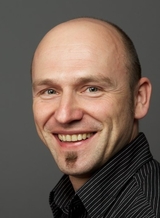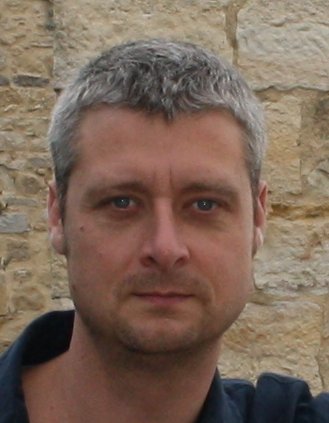Matheuristics 2016
Sixth International Workshop on Model-based Metaheuristics
September 4-7, 2016, Brussels, Belgium
Registration
Matheuristics 2016 is a non-profit workshop. The registration fee for Matheuristics 2016 is 370 EUR and it includes the participation to the Matheuristics 2016 workshop, the workshop dinner, lunches and coffee breaks. Students are entitled to a reduced registration fee of 320 EUR.In order to register as a participant for Matheuristics 2016 please download the registration form (docx or odt), fill in the relevant information and send it via email to matheuristics@iridia.ulb.ac.be.
Coffee will be served during breaks. For accommodations, look at the practical information page.
Program
Workshop schedule:- Sunday 4th:
- 18:00-20:00: informal get-together
- Monday 5th:
- 9:00-16:00: registration
- 9:20-9:30: welcome
- 9:30-10:30: invited talk:
- Combining Metaheuristics based on Solution Construction with Exact Techniques, Christian Blum
- 10:30-11:00: coffee break
- 11:00-12:30: contributed talks:
- A Matheuristic Approach for Solving the Edge-Disjoint Paths Problem, Bernardo Martín, Ángel Sánchez, César Beltrán and Abraham Duarte
- A Matheuristic for the VRP with Limited Traffic Zones, Simona Mancini
- A General Corridor Method Based Approach for Capacitated Facility Location, Marco Caserta and Stefan Voß
- 12:30-14:00: lunch
- 14:00-15:30: contributed talks
- Stochastic Real World Warehouse Pre-Marshalling, Vittorio Maniezzo, Marco Boschetti and Walter Gutjahr
- A Matheuristic Approach for Solving the 2-Connected Dominating Set Problem, Raka Jovanovic and Stefan Voß
- A Variable Neighborhood Decomposition Search Applied to the Hierarchical Hub Location and Routing Problem, Fábio Fontes and Gilles Goncalves
- 15:30-16:00: coffee break
- 16:00-17:30: contributed talks
- The irace Package: Iterated Racing for Automatic Algorithm Configuration, Manuel López-Ibáñez, Jérémie Dubois-Lacoste, Leslie Pérez Cáceres, Thomas Stützle and Mauro Birattari
- Hands-on tutorial on setting up and tuning with irace. Please bring your own Laptop and pre-install R (before the session) as you will be required to execute irace yourself. Tutorial webpage here.
- 17:45-19:30: tour to dinner place
- 19:30-22:30: gala dinner
- Tuesday 6th:
- 9:30-10:30: invited talk
- GCG: A Generic Branch-Price-and-Cut Solver, Marco Lübbecke
- 10:30-11:00: coffee break
- 11:00-12:30: contributed talks
- A Large Neighbourhood Search Principle for Column-Oriented Models: Theoretical Derivation and Example Applications, Yixin Zhao, Torbjörn Larsson and Elina Rönnberg
- A Fix-and-Optimize VNS Algorithm Applied to the Nurse Rostering Problem, Toni Wickert, Carlo Sartori and Luciana Buriol
- A Dynamic Programming-Based Matheuristic for Dynamic Berth Allocation Problems, Tatsushi Nishi, Tatsuya Okura, Eduardo Lalla-Ruiz, Stefan Voß
- 12:30-14:00: lunch
- 14:00-15:30: contributed talks
- Time-Bucket Based Mixed Integer Programming Models for Scheduling Problems: A Promising Starting Point for Matheuristics, Günther Raidl, Thomas Jatschka, Martin Riedler and Johannes Maschler
- Dual Heuristics and New Dual Bounds for the Challenge EURO/ROADEF 2010, Nicolas Dupin and El-Ghazali Talbi
- MIP-based Constructive Heuristics for the Three-Dimensional Bin-Packing Problem with Transportation Constraints, Célia Paquay, Sabine Limbourg, José Fernando Oliveira and Michael Schyns
- 15:30-16:00: coffee break
- 16:00-17:00: contributed talks
- A Hybrid Tabu Search and ILP heuristic for the Maximum Total Flow with Flexible Arc Outages, Qipeng Xu, Xi Liu and Lanbo Zheng
- Automatic Configuration of MIP Solver: Case Study in Vertical Flight Planning, Zhi Yuan
- 18:00: Walk through Bois de la Cambre, drink
- 9:30-10:30: invited talk
- Wednesday 7th:
- 9:30-10:30: invited talk
- Metaphor-Based Metaheuristics: Who's to Blame?, Kenneth Sörensen
- 10:30-11:00: coffee break
- 11:00-12:30: contributed talks
- Matheuristics for the Discretized Unit Commitment Problem with Min-Stop Ramping Constraints, Nicolas Dupin and El-Ghazali Talbi
- Combining Metaheuristics with Column Generation: Successful Approaches to Enhance Column Generation Algorithms Performance, Fabián Castaño and Marc Sevaux
- Scaling Analysis of High-Performance TSP Algorithms, Holger Hoos and Thomas Stützle
- 12:30: end of the workshop
- 9:30-10:30: invited talk
Invited speakers
Christian Blum:
Combining Metaheuristics Based on Solution Construction with Exact Techniques
Abstract: In this talk we deal with two different algorithmic approaches that combine metaheuristics with exact techniques. Both algorithms are based on the probabilistic construction of solutions: Beam-ACO is an algorithm that results from the combination of the metaheuristic ant colony optimization with beam search, which is a heuristic variant of branch and bound. On the other side, CMSA (Construct, Merge, Solve & Adapt) is a rather recent hybrid algorithm that is based on generating sub-instances to the tackled problem instance by means of probabilistic solution construction. These sub-instances are then solved to optimality by exact techniques. Both algorithms are introduced in the context of the multi-dimensional knapsack problem. Moreover, we show, in the context of the repetition-free longest common subsequence problem, that ideas from both algorithms can beneficially be combined into even more powerful algorithms. Finally, we start to explore the relation of CMSA with LNS (large neighborhood search). In particular, we show for which kind of problems CMSA can be a good alternative to LNS. Bio: Christian Blum currently holds the permanent post of an Ikerbasque Research Professor at the University of the Basque Country in San Sebastian, Spain. Besides topics in swarm intelligence, his research interests are mainly focused on the hybridization of metaheuristics with other techniques for optimization. He has (co-)authored more than 140 publications in international journals, books, and peer-reviewed conference proceedings. Apart from acting as area editor for the journal Computers & Operations Research (responsible for metaheuristics), he is also associate editor for journals such as Theoretical Computer Science and Natural Computing. Moreover, he is a co-founder of the workshop series on Hybrid Metaheuristics.
Bio: Christian Blum currently holds the permanent post of an Ikerbasque Research Professor at the University of the Basque Country in San Sebastian, Spain. Besides topics in swarm intelligence, his research interests are mainly focused on the hybridization of metaheuristics with other techniques for optimization. He has (co-)authored more than 140 publications in international journals, books, and peer-reviewed conference proceedings. Apart from acting as area editor for the journal Computers & Operations Research (responsible for metaheuristics), he is also associate editor for journals such as Theoretical Computer Science and Natural Computing. Moreover, he is a co-founder of the workshop series on Hybrid Metaheuristics.
Marco Lübbecke:
GCG: A Generic Branch-Price-and-Cut Solver
Abstract: Dantzig-Wolfe refomulation of an integer program and column generation are formally well-described and successfully applied in many applications in the literature. An important goal of the reformulation is to arrive at stronger formulations. Whether this actually leads to faster computation times depends on the particular problem. Once the precise way to reformulate a model is chosen, the reformulation itself and its algorithmic treatment follow a mechanic process. We developed GCG, a solver that is able to generically perform the entire process, including the choice of a suitable reformulation of a given mixed-integer program. As with all solvers in mathematical optimization, the approach is principally exact, but its performance hinges on several heuristic and empirical decisions in the course of an actual run of the solver. We present the ideas behind the solver, the current state of development, some experiments, what we have learned so far, and ways the solver could be used in applications and other contexts. Bio: Marco
Lübbecke is professor and chair of operations research at the
RWTH Aachen University.
He is interested in computational integer
programming, and has a research focus on decomposition-based methods
(e.g., Dantzig-Wolfe reformulation, column generation, and
branch-and-price) applied to large-scale and complex optimization
problems. Many of these directly come from industrial applications in
production, logistics, transport, energy, politics, healthcare, and
education. He is currently Vice President for Information Technology
in the INFORMS board of directors.
Bio: Marco
Lübbecke is professor and chair of operations research at the
RWTH Aachen University.
He is interested in computational integer
programming, and has a research focus on decomposition-based methods
(e.g., Dantzig-Wolfe reformulation, column generation, and
branch-and-price) applied to large-scale and complex optimization
problems. Many of these directly come from industrial applications in
production, logistics, transport, energy, politics, healthcare, and
education. He is currently Vice President for Information Technology
in the INFORMS board of directors.
Kenneth Sörensen:
Metaphor-Based Metaheuristics: Who's to Blame?
Abstract: There is no doubt that early metaphor-based metaheuristics (evolutionary algorithms, simulated annealing, ant colony optimization, ...) have contributed immensely to the arsenal of metaheuristic techniques currently available, as well as to our understanding of metaheuristics as general-purpose optimization frameworks. The last decade, however, has witnessed an explosive increase in the number of processes, natural or man-made, that have been used as a metaphor for the development of supposedly novel metaheuristics. Indeed, a subculture seems to have arisen within the metaheuristics community in which the value of a heuristic is judged solely by the novelty of the process it purportedly models. The result is an enormous jungle of "novel" techniques that neither perform well, nor provide any useful insight. Together with the increasing outlandish nature of these processes, no doubt a result of the exhaustion of the more obvious processes that actually optimize something, comes an increasing awareness that there is something seriously wrong with this way of doing "research". Several journals have now modified their editorial policies to explicitly prohibit "novel" metaphor-based methods and many researchers have spoken out against them. When investigating the reasons why it was the metaheuristics community that fell victim to the metaphor fallacy, and why papers that have no discernible scientific value do get published in this field, we have to conclude that the responsibility lies, at least partially, with the community itself. We make a plea for a "scientification" of the field of metaheuristics, which includes swearing off some of its old habits and customs. (Shared talk with ANTS'2016) Bio: Kenneth Sörensen is professor
at the Faculty of Applied Economics
of the University of Antwerp, where he also obtained his PhD.
Kenneth Sörensen chairs the research group ANT/OR
(University of Antwerp Operations Research Group), a group that focuses on applications
of Operations Research in diverse domains, and on the development of optimization algorithms,
especially metaheuristics. Kenneth Sörensen has published
extensively on applied (heuristic) optimization and is a leading expert
on the development of metaheuristics. He also founded the largest
working group on metaheuristics: EU/ME - the metaheuristics community.
Bio: Kenneth Sörensen is professor
at the Faculty of Applied Economics
of the University of Antwerp, where he also obtained his PhD.
Kenneth Sörensen chairs the research group ANT/OR
(University of Antwerp Operations Research Group), a group that focuses on applications
of Operations Research in diverse domains, and on the development of optimization algorithms,
especially metaheuristics. Kenneth Sörensen has published
extensively on applied (heuristic) optimization and is a leading expert
on the development of metaheuristics. He also founded the largest
working group on metaheuristics: EU/ME - the metaheuristics community.
Matheuristics website by Alberto Franzin. Header image cropped from this one.
Last update: 2016.09.14